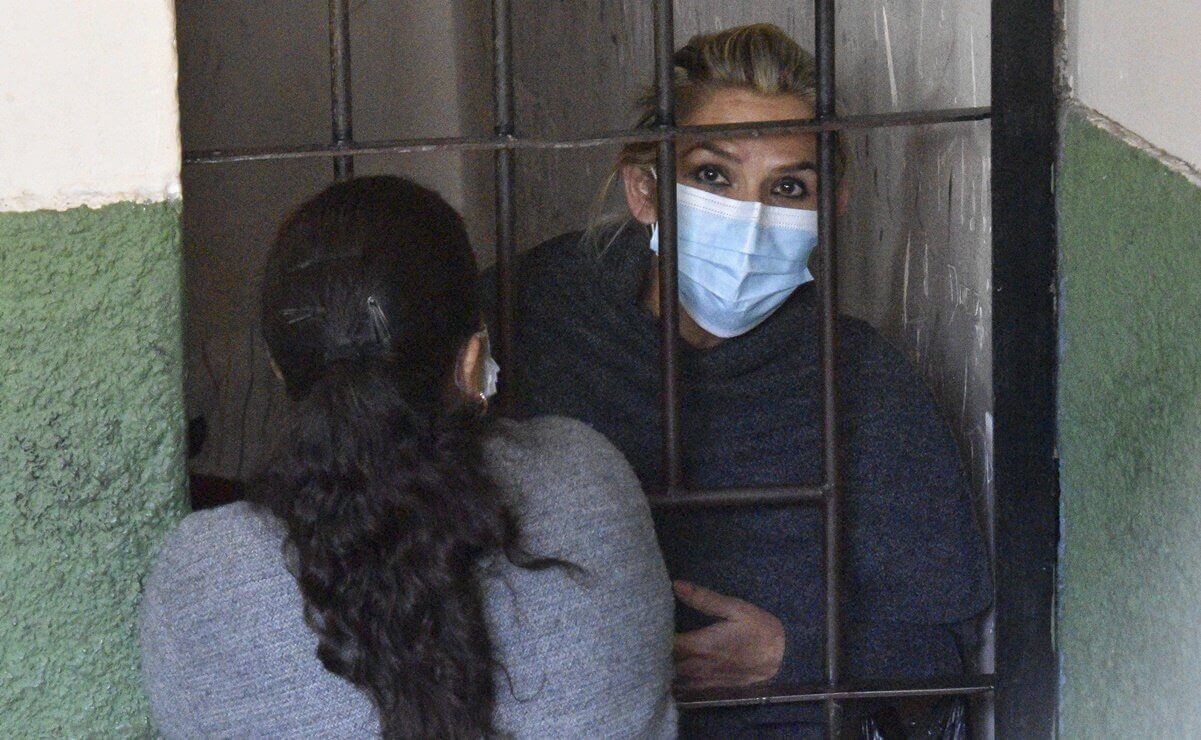On Saturday, the former interim President of Bolivia, Jeanine Áñez, who was in power from November 2019 to November 2020 following a coup to oust socialist leader Evo Morales, was arrested on charges of terrorism, sedition, and conspiracy.
Appearing before a prosecutor, Áñez reiterated her claim that her ascent to power was not through a coup but a “constitutional succession”, and described her arrest as “abuse”. To this end, she called on the Organisation of American States (OAS) and the European Union (EU) to look into her “illegal detention”.
Áñez, several former Cabinet ministers, former military leader William Kaliman, and ex-police chief Yuri Calderón now face sentencing for their role in what the current government views as a coup, as evidenced by remarks from Minister of Government Eduardo del Castillo and Justice Minister Iván Lima. Lima said that Áñez would not be granted “constitutional privileges” that are afforded to present and former presidents, as she was an opposition senator at the time of the coup, not the president.
Prior to her arrest, on Friday, Áñez denounced the ruling party for “return[ing] to the styles of the dictatorship” after an arrest warrant was issued for her and some of her Cabinet ministers. Former Justice Minister Álvaro Coimbra, former Energy Minister Rodrigo Guzmán, ex-military chief Kaliman, and former police chief Calderón were all arrested last week. Arrest warrants have also been issued for the former Minister of Presidency Yerko Nuñez and former Defence Minister Fernando López.
In November 2019, Morales resigned amidst nationwide protests, military pressure, and allegations that he was attempting the rig the system to secure a fourth term to extend his fourteen-year rule. After he stepped down, Senator Jeanine Áñez, leading a coalition of the Democrat Social Movement party and four other parties, assumed the interim presidency via what is widely assumed to be a US-backed coup.
Morales led the nation from 2006 to 2019 and won three consecutive elections and ran for a fourth term in October 2019 prior to his resignation in November. This was in contravention of the three-term limit, a law that was reinforced by the fact that citizens voted against a constitutional amendment that would remove this limit in 2016. Nevertheless, he contested the election and was unsurprisingly declared the winner. However, several irregularities prompted suggestions of vote-rigging, resulting in widespread protests, ultimately leading to his resignation on November 10 under military and public pressure.
In October 2020, the candidate from Morales’ Movement Toward Socialism (MAS) party, Luis Arce, was declared the victor of Bolivia’s presidential election. Following his swearing-in ceremony, Morales returned to the country from exile and President Arce began reinstituting some of the left-leaning tendencies that were prevalent under Morales’ rule. At the same time, his administration made moves towards holding the Áñez administration accountable for Morales’ ouster.
Carlos Mesa, who was defeated by Arce in last year’s election, said of Áñez’s arrest: “They are seeking to decapitate an opposition by creating a false narrative of a coup to distract from a fraud.”
However, this ignores the fact that Áñez herself attempted to prosecute Morales and officials within his administration for electoral fraud and political suppression while she was in power.
As expected, former leader Morales tweeted, “The authors and accomplices of the dictatorship should be investigated and published.”
Meanwhile, the US State Department’s assistant secretary in its Bureau of Western Hemisphere Affairs, Julie Chung, urged Bolivian authorities to “safeguard” civil rights and due process. This point was reiterated by Stéphane Dujarric, the spokesperson for United Nations Secretary-General António Guterres, who emphasised on the “importance of upholding due process guarantees and full transparency in all legal proceeding”. Likewise, the EU said, “The accusations linked to the events of 2019 must be dealt with within the framework of a transparent judicial process and without political pressure, with full respect for the independence of the powers.”
Áñez will now be held in detention for four months for a coup that she says “never happened”. The Prosecutor’s Office has requested the judge in charge of the case to place Áñez, former Justice Minister Coimbra, and former Energy Minister Guzman in a public jail for six months due to the “high risk of escape” by leaving the country to “escape arrest”.
Former Bolivian President Áñez Arrested For Role in 2019 Coup to Oust Morales
Áñez, several former Cabinet ministers, former military leader William Kaliman, and ex-police chief Yuri Calderón now face sentencing for their role in what the current government views as a coup.
March 16, 2021

IMAGE SOURCE: EPAFormer Bolivian President Jeanine Áñez, behind bars
